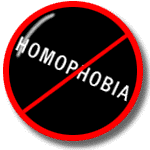August 27, 2014
Audio Recording of Commonwealth Club Lecture Is Now Available
The audio recording of my August 18 lecture at the Commonwealth Club of California is now available.
Listen to it on the Commonwealth Club’s website.

The audio recording of my August 18 lecture at the Commonwealth Club of California is now available.
Listen to it on the Commonwealth Club’s website.

In 1957, Dr. Evelyn Hooker’s groundbreaking study documented that, despite the conventional psychiatric wisdom of the day, gay men were not inherently maladjusted. More studies followed that similarly failed to find differences in psychological functioning between heterosexuals and nonheterosexuals.
Eventually, this body of research provided the scientific foundation for the American Psychiatric Association’s 1973 decision to remove homosexuality as a diagnosis from the Diagnostic and Statistical Manual of Mental Disorders, and the American Psychological Association’s strong endorsement of that declassification.
With the advantage of hindsight, we can see that debates about Dr. Hooker’s work and that of later researchers — and, more broadly, about the status of homosexuality as a pathology — often conflated questions about homosexuality’s classification as a mental illness with questions about the prevalence of psychological disorders in a particular population. It was inappropriately assumed that if lesbian, gay, or bisexual people had higher rates of psychopathology or psychological distress than heterosexuals, homosexuality itself must be an illness.
We now recognize that sexual stigma in its many forms is a significant stressor that can affect an individual’s physical and mental health. Thus, it is not surprising that large-scale studies of the US population have revealed that, while most lesbian, gay, and bisexual people are functioning well, some are not. And, as a 2011 report by the Institute of Medicine documented, a substantial array of health disparities exist between the population at large and sexual and gender minorities.
Against this backdrop, newly released data from Gallup reveal that US adults who identify as lesbian, gay, bisexual, or transgender (LGBT) report lower levels of well-being than their non-LGBT counterparts. Comparing the self-reports of 2,964 LGBT research participants with those of 81,134 other respondents, and controlling statistically for relevant demographic variables, Dr. Gary Gates found that the latter group reported less well-being in all five areas covered by the index.
The disparities were especially pronounced among women respondents. Sexual and gender minority women scored substantially lower than other women on measures of financial, physical, social, and community well-being, as well as a measure of having a sense of purpose in life. Among men, disparities were observed for financial and social well-being.
The initial report, which is available on the Gallup website, doesn’t separate the well-being scores of lesbian/gay, bisexual, and transgender respondents. Comparing these groups will be important insofar as past research has revealed important differences among them. (From the perspective of scientific research, a problem with combining the groups under the “LGBT” initialism is that it tends to obscure these differences.)
While reading the tables in the report it’s also important to keep in mind that, because the sample sizes are so large, relatively small differences between groups (i.e., 1 or 2 percentage points) can be statistically significant without having much practical importance. But the differences highlighted by Dr. Gates are generally larger than this.
As Dr. Gates concluded,
“These disparities associated with sexual orientation and gender identity highlight the ongoing need for the inclusion of sexual orientation and gender identity measures in data collection focused on health and socio-economic outcomes. Availability of better data that identify the LGBT population will help researchers, healthcare policymakers, and healthcare providers craft better strategies to understand and prevent well-being disparities associated with sexual orientation and gender identity.”

The Commonwealth Club of California
595 Market Street, San Francisco
Mon, August 18, 2014 at 6:00pm (networking reception at 5:30 pm)
The concept of homophobia – a word first coined in the 1960s – has played an important role in shifting society’s focus onto the problem of prejudice against people who aren’t heterosexual. But the word homophobia conveys a variety of assumptions that can actually limit our thinking. Drawing from social science research findings, including his own studies over the past 30 years, Prof. Herek will explain the value of looking beyond the usual conceptions of homophobia to develop a better understanding of stigma, discrimination and prejudice against sexual minorities, and to formulate effective strategies for changing attitudes.
This program is part of the 2014 Platforum series The LGBT Journey, sponsored by Ernst & Young.
“Beyond Homophobia” has been on extended hiatus but I’m hoping to resume it in the coming months. Meanwhile, I’ll be posting brief entries and announcements from time to time.